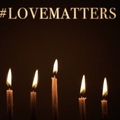@therealDonaldTrump @realDonaldTrump, etc....
EdibleWords
Forum Posts: 3004
Tyrant of Words
9
Joined 7th Jan 2018Forum Posts: 3004
I AM Black to Destroy Privilege and Honor My Human Ancestry
No one shall separate me
from my sisters
or my brothers
Not dispersion
nor cold winters
Not harsh opinion
Not the cursed
Seeds of “color”
Defying our one
human parentage
Honor thy Fathers
and Mothers
Who birthed
you in Africa
from my sisters
or my brothers
Not dispersion
nor cold winters
Not harsh opinion
Not the cursed
Seeds of “color”
Defying our one
human parentage
Honor thy Fathers
and Mothers
Who birthed
you in Africa
Written by EdibleWords
Go To Page
EdibleWords
Forum Posts: 3004
Tyrant of Words
9
Joined 7th Jan 2018Forum Posts: 3004
EdibleWords
Forum Posts: 3004
Tyrant of Words
9
Joined 7th Jan 2018Forum Posts: 3004
Supremist Privilegers Push Myths and Pet Victims
In order to
avoid social
disorder
Test for bigotry
by claiming
your roots
Watch hypocrites
squirm
but not say
“I AM black”
Watch them claim
they keep others
down with fiction
invisible chains
apologizing
insultingly
as though they have
any advantage
because of
official oppression
that oppresses
even them
class warfare
gang warfare
they hide
behind screens
Watch them disown
your ancestors
to label you
over your
skin color
They are not blind
they are not kind
They want victims
a class pet
avoid social
disorder
Test for bigotry
by claiming
your roots
Watch hypocrites
squirm
but not say
“I AM black”
Watch them claim
they keep others
down with fiction
invisible chains
apologizing
insultingly
as though they have
any advantage
because of
official oppression
that oppresses
even them
class warfare
gang warfare
they hide
behind screens
Watch them disown
your ancestors
to label you
over your
skin color
They are not blind
they are not kind
They want victims
a class pet
Written by EdibleWords
Go To Page
EdibleWords
Forum Posts: 3004
Tyrant of Words
9
Joined 7th Jan 2018Forum Posts: 3004
Let BLM Break Pork Together (catch hypocrites)
Let BLM Break Pork Together (catch hypocrites)
Back in the day
Sunday Privilege knew
How to use mere words
to steer war
No where could
a Muslim or Jew
hide their faith
at pork feasts
So let hypocrite
invaders
with bigotry
espionage
...of privilege
say humbly
with fist raised
before all
Their wives
children
parents
friends
“I am black”
Back in the day
Sunday Privilege knew
How to use mere words
to steer war
No where could
a Muslim or Jew
hide their faith
at pork feasts
So let hypocrite
invaders
with bigotry
espionage
...of privilege
say humbly
with fist raised
before all
Their wives
children
parents
friends
“I am black”
Written by EdibleWords
Go To Page
EdibleWords
Forum Posts: 3004
Tyrant of Words
9
Joined 7th Jan 2018Forum Posts: 3004
Did George Floyd Bring Justice to David Dorn?
Who will say
#policelivesmatter
when they are
slaughtered?
#policelivesmatter
when they are
slaughtered?
Written by EdibleWords
Go To Page
SatInUGal
Kumar
 25
25 Joined 31st Dec 2015
Joined 31st Dec 2015
Forum Posts: 941
Kumar
Dangerous Mind
 25
25Forum Posts: 941
HERE’S WHY IT HURTS WHEN PEOPLE SAY, “ALL LIVES MATTER”
A national youth advocate and educator explains why mattering means so much to black Americans.
BY L-MANI S. VINEY
JULY 19, 2016
“Black Lives Matter”Yes, we do. Period. In its simplest definition, to matter means to be of importance, significance, and consequence. And for many in the African-American community, saying “Black Lives Matter” is our way of declaring that we are important, our issues are important, and neither we as individuals, nor the issues that impact us, will be discarded, overshadowed, treated as nonsense, or accused of “playing the race card” anymore. No. We matter.
Saying “Black Lives Matter” is neither separatist nor racist. It is not anti-white, and, contrary to what some in the media may say, it is definitely not anti-police. It does not denote, promote, or support hatred of or violence against any ethnic group. Let me say that again: it does not promote or support hatred or violence against any group. It is about promoting the love of self and African-American rights to equal justice and fairness.
In no way does valuing the lives of black people in America and the global diaspora mean de-valuing the lives of anyone else. That’s why many of us feel a sense of confusion, bewilderment, and, yes, anger, when people shout “All Lives Matter” as a counter to “Black Lives Matter.” After all, we as African-Americans have supported America in nearly every moment of victory and crisis this country has witnessed.
In nearly every war this country has fought, from the War of Independence to Vietnam and Iraq, African-Americans have jumped at the opportunity to serve and fight for freedom—even when they were being denied those same freedoms at home.
When terrorists attacked America on September 11, African-Americans stood in solidarity with every American on that day and every day since.
Domestically, when horrific shootings erupted in places such as at Columbine, Virginia Tech, and Sandy Hook, we cried, grieved, prayed, and supported the families of those who lost their children just like every other American did.
When gunmen opened fire in Orlando two weeks ago, we too prayed, participated in vigils, and changed our social-media avatars to L.G.B.T.-friendly rainbow flags in solidarity.
Even in this era of fierce debate around the issue of police brutality, many of us African-Americans make it a point to articulate our support for the 99 percent of police that do their honorable, thankless job right. And each time police officers have been killed or murdered in the line of duty, from Wenjian Liu and Rafael Ramos in New York in 2014 to Michael Smith, Lorne Ahrens, Michael Krol, Patrick Zamarripa, and Brent Thompson in Dallas just a week ago, we too mourned and honored those who died. To give just one example, after the events in Dallas, an African-American boy asked his mother if he could hug one of the officers. That led to a long line of people of all colors and backgrounds showing their support for the grieving men and women in blue.
It’s hardly news to African-Americans that all lives matter. Our history of enduring challenges and tragedies allows us to understand what other people and groups endure. But that same understanding compels us to say Black Lives Matter, because the empathy we have shown others has so rarely been reciprocated.
There is a well-documented tendency to view the trials and tribulations of African-Americans in a silo, as African-American issues rather than American issues. So in times of tragedy and crisis, the African-American community often feels left to its own devices for support. Nothing illustrates this cultural “empathy gap” more clearly than social media. You could see it in the immediate aftermath of the killings of Alton Sterling and Philando Castile.
For those 48 hours, Facebook, Twitter, and Instagram seemed like hell for African-Americans. Scrolling down every person’s feed was like a journey into the depths of despair, grief, pain, anger, and depression. The events were so overwhelming and unbearable that some even posted about breaking down in tears out of nowhere or not being able to function at work. Those who are parents expressed the fear that their sons may be victims one day.
This anguish did not immediately appear on the feeds of many of the white Americans that I know. Not that we were surprised. We saw this before, with Tamir Rice, Sandra Bland, Walter Scott, Trayvon Martin, Mike Brown, Eric Garner. One of the clearest contrasts could be found the weekend after Hurricane Katrina in New Orleans, where so many, mostly black people, lay stranded at the Superdome suffering and dying while, only an hour away in Baton Rouge, L.S.U. was playing a football game filled with 100,000 mostly white people packing its stadium as if nothing else in the world was happening.
It’s almost as if we lived in two different worlds. That’s where things appeared to be headed in 1968, when the Kerner Commission report on civil disorders in America cryptically concluded that the nation was “moving toward two societies, one black, one white—separate and unequal.” Maybe that’s what happened. Maybe that explains why, for too many of our fellow Americans, we just don’t seem to matter.
If All Lives Matter, why is the black community continually asked to justify its anger and grief? If All Lives Matter, why does the court system continue to put the victims of racial discrimination and police brutality on trial, rather than punishing their assailants? If All Lives Matter, why do our fellow Americans continually challenge African-Americans to justify our pain instead of empathizing with it?
Do all lives matter? Of course! And you will be hard pressed to find any African-American who would say otherwise. But we will continue to say Black Lives Matter until African-American lives are given the same value as the lives of people from other countries, our police officers, your property, a lion named Cecil, and a gorilla named Harambe.
A national youth advocate and educator explains why mattering means so much to black Americans.
BY L-MANI S. VINEY
JULY 19, 2016
“Black Lives Matter”Yes, we do. Period. In its simplest definition, to matter means to be of importance, significance, and consequence. And for many in the African-American community, saying “Black Lives Matter” is our way of declaring that we are important, our issues are important, and neither we as individuals, nor the issues that impact us, will be discarded, overshadowed, treated as nonsense, or accused of “playing the race card” anymore. No. We matter.
Saying “Black Lives Matter” is neither separatist nor racist. It is not anti-white, and, contrary to what some in the media may say, it is definitely not anti-police. It does not denote, promote, or support hatred of or violence against any ethnic group. Let me say that again: it does not promote or support hatred or violence against any group. It is about promoting the love of self and African-American rights to equal justice and fairness.
In no way does valuing the lives of black people in America and the global diaspora mean de-valuing the lives of anyone else. That’s why many of us feel a sense of confusion, bewilderment, and, yes, anger, when people shout “All Lives Matter” as a counter to “Black Lives Matter.” After all, we as African-Americans have supported America in nearly every moment of victory and crisis this country has witnessed.
In nearly every war this country has fought, from the War of Independence to Vietnam and Iraq, African-Americans have jumped at the opportunity to serve and fight for freedom—even when they were being denied those same freedoms at home.
When terrorists attacked America on September 11, African-Americans stood in solidarity with every American on that day and every day since.
Domestically, when horrific shootings erupted in places such as at Columbine, Virginia Tech, and Sandy Hook, we cried, grieved, prayed, and supported the families of those who lost their children just like every other American did.
When gunmen opened fire in Orlando two weeks ago, we too prayed, participated in vigils, and changed our social-media avatars to L.G.B.T.-friendly rainbow flags in solidarity.
Even in this era of fierce debate around the issue of police brutality, many of us African-Americans make it a point to articulate our support for the 99 percent of police that do their honorable, thankless job right. And each time police officers have been killed or murdered in the line of duty, from Wenjian Liu and Rafael Ramos in New York in 2014 to Michael Smith, Lorne Ahrens, Michael Krol, Patrick Zamarripa, and Brent Thompson in Dallas just a week ago, we too mourned and honored those who died. To give just one example, after the events in Dallas, an African-American boy asked his mother if he could hug one of the officers. That led to a long line of people of all colors and backgrounds showing their support for the grieving men and women in blue.
It’s hardly news to African-Americans that all lives matter. Our history of enduring challenges and tragedies allows us to understand what other people and groups endure. But that same understanding compels us to say Black Lives Matter, because the empathy we have shown others has so rarely been reciprocated.
There is a well-documented tendency to view the trials and tribulations of African-Americans in a silo, as African-American issues rather than American issues. So in times of tragedy and crisis, the African-American community often feels left to its own devices for support. Nothing illustrates this cultural “empathy gap” more clearly than social media. You could see it in the immediate aftermath of the killings of Alton Sterling and Philando Castile.
For those 48 hours, Facebook, Twitter, and Instagram seemed like hell for African-Americans. Scrolling down every person’s feed was like a journey into the depths of despair, grief, pain, anger, and depression. The events were so overwhelming and unbearable that some even posted about breaking down in tears out of nowhere or not being able to function at work. Those who are parents expressed the fear that their sons may be victims one day.
This anguish did not immediately appear on the feeds of many of the white Americans that I know. Not that we were surprised. We saw this before, with Tamir Rice, Sandra Bland, Walter Scott, Trayvon Martin, Mike Brown, Eric Garner. One of the clearest contrasts could be found the weekend after Hurricane Katrina in New Orleans, where so many, mostly black people, lay stranded at the Superdome suffering and dying while, only an hour away in Baton Rouge, L.S.U. was playing a football game filled with 100,000 mostly white people packing its stadium as if nothing else in the world was happening.
It’s almost as if we lived in two different worlds. That’s where things appeared to be headed in 1968, when the Kerner Commission report on civil disorders in America cryptically concluded that the nation was “moving toward two societies, one black, one white—separate and unequal.” Maybe that’s what happened. Maybe that explains why, for too many of our fellow Americans, we just don’t seem to matter.
If All Lives Matter, why is the black community continually asked to justify its anger and grief? If All Lives Matter, why does the court system continue to put the victims of racial discrimination and police brutality on trial, rather than punishing their assailants? If All Lives Matter, why do our fellow Americans continually challenge African-Americans to justify our pain instead of empathizing with it?
Do all lives matter? Of course! And you will be hard pressed to find any African-American who would say otherwise. But we will continue to say Black Lives Matter until African-American lives are given the same value as the lives of people from other countries, our police officers, your property, a lion named Cecil, and a gorilla named Harambe.
SatInUGal
Kumar
 25
25 Joined 31st Dec 2015
Joined 31st Dec 2015
Forum Posts: 941
Kumar
Dangerous Mind
 25
25Forum Posts: 941

Exhibit 1
SatInUGal
Kumar
 25
25 Joined 31st Dec 2015
Joined 31st Dec 2015
Forum Posts: 941
Kumar
Dangerous Mind
 25
25Forum Posts: 941

Exhibit 2
SatInUGal
Kumar
 25
25 Joined 31st Dec 2015
Joined 31st Dec 2015
Forum Posts: 941
Kumar
Dangerous Mind
 25
25Forum Posts: 941

Exhibit 3
SatInUGal
Kumar
 25
25 Joined 31st Dec 2015
Joined 31st Dec 2015
Forum Posts: 941
Kumar
Dangerous Mind
 25
25Forum Posts: 941

Exhibit 4
SatInUGal
Kumar
 25
25 Joined 31st Dec 2015
Joined 31st Dec 2015
Forum Posts: 941
Kumar
Dangerous Mind
 25
25Forum Posts: 941

Exhibit 5
SatInUGal
Kumar
 25
25 Joined 31st Dec 2015
Joined 31st Dec 2015
Forum Posts: 941
Kumar
Dangerous Mind
 25
25Forum Posts: 941

Exhibit 6
SatInUGal
Kumar
 25
25 Joined 31st Dec 2015
Joined 31st Dec 2015
Forum Posts: 941
Kumar
Dangerous Mind
 25
25Forum Posts: 941
Do I need to do more? Honestly, I think that last one should be all any person needs if they are being earnest about this.
EdibleWords
Forum Posts: 3004
Tyrant of Words
9
Joined 7th Jan 2018Forum Posts: 3004
SatInUGal said:HERE’S WHY IT HURTS WHEN PEOPLE SAY, “ALL LIVES MATTER”
A national youth advocate and educator explains why mattering means so much to black Americans.
BY L-MANI S. VINEY
JULY 19, 2016
“Black Lives Matter”Yes, we do. Period. In its simplest definition, to matter means to be of importance, significance, and consequence. And for many in the African-American community, saying “Black Lives Matter” is our way of declaring that we are important, our issues are important, and neither we as individuals, nor the issues that impact us, will be discarded, overshadowed, treated as nonsense, or accused of “playing the race card” anymore. No. We matter.
This is about using narcissist victim hood to abuse police and let thugs rule. Gaslighting, IOW
Proof:
I am black
I am from Africa
I am David Dorn
A national youth advocate and educator explains why mattering means so much to black Americans.
BY L-MANI S. VINEY
JULY 19, 2016
“Black Lives Matter”Yes, we do. Period. In its simplest definition, to matter means to be of importance, significance, and consequence. And for many in the African-American community, saying “Black Lives Matter” is our way of declaring that we are important, our issues are important, and neither we as individuals, nor the issues that impact us, will be discarded, overshadowed, treated as nonsense, or accused of “playing the race card” anymore. No. We matter.
This is about using narcissist victim hood to abuse police and let thugs rule. Gaslighting, IOW
Proof:
I am black
I am from Africa
I am David Dorn















